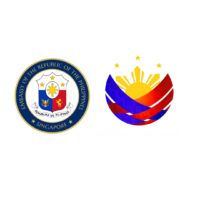
11 September 2020 – As part of its cultural diplomacy initiatives in the new normal, The Philippine Embassy in Singapore’s Sentro Rizal collaborated with the Asia-Europe Foundation (ASEF) in conducting the webinar “How Relevant is Cultural Diplomacy in the Face of a Global Crisis?” on 10 September 2020 via Zoom platform.
The event, which is the 3rd installment of ASEF’s Public Diplomacy Training Webinar Series, aimed to (1) equip diplomats, cultural practitioners, and public servants with strategies and best practices on how to conduct cultural diplomacy amidst a pandemic using online and digital platforms, (2) enable participants to have a new appreciation and understanding of cultural diplomacy in the new normal, and (3) discuss the impact of the pandemic on Asia-Europe cultural and people-to-people exchanges.
Moderated by ASEF Director of the Culture Department Anupama Sekhar, the panelists were Ambassador Leon Faber, ASEF’s new Deputy Executive Director; Ms. Marie Le Sourd, Secretary General of, On The Move, a cultural mobility information network active in Europe and worldwide; and Assistant Secretary Eduardo Martin R. Menez of the DFA Office of Strategic Communications and Research.
Around 400 registered for the webinar, 100 of which were logged in on the Zoom platform while others watched through YouTube livestream.

Assistant Secretary Menez opened the discussion by answering directly the title of the webinar: “Cultural diplomacy is even more relevant today as the world has become a captive audience where minds need to be nourished to replace the loss of physical socialization and movement, and as we now live in a world of virtual congregation and escape. As UNESCO recently tweeted – ‘In time of crisis, we need culture to make us resilient, give us hope, remind us that we are not alone.’”
Meanwhile, Ambassador Faber emphasized that “although cultural diplomacy is considered a relatively new concept, it has actually been applied since time immemorial. Today, it is a pillar of bilateral cooperation amongst countries.”
Despite the advantages created by digitalization for cultural diplomacy, Ambassador Faber admits, “It is not just the same as the real experience. After all, we do not just see and hear. We also smell and taste.”
Ms. Le Sourd agreed that the “pandemic adds another layer of complexity” to cultural diplomacy. Nonetheless, “online activities…now fills in the gap caused by the absence of physical mobility. You can get in touch with people you probably would have never met before,” she added.
Other major takeaways during the discussion were: (1) need for a sustainable funding model for artists in a new post-COVID-19 ecosystem; (2) training is essential for both cultural professionals and diplomats; and (3) a higher level of dialogue between government officials in charge of culture and those working in culture is needed.
On the third point, Assistant Secretary Menez cited as an example the Cultural Diplomacy Partners Consultation Conference that the DFA convened in November 2019 and January 2020 that gathered academics, artists, cultural practitioners, and other government partners culminating in the crafting of a Cultural Diplomacy Strategic Plan 2020-2022.
“For Asia-Europe cultural cooperation, the near-term activity insofar as the Philippines and other Asian states along the circumnavigation route are concerned is the Quincentennial in 2021. Our histories and futures are intertwined in many ways, and we look forward to working with ASEF in exploring more avenues to further widen and deepen our collaborations, Assistant Secretary Menez added.
The recording of the webinar can still be viewed through the link: https://www.youtube.com/watch?v=ajuZCyBEmu8&feature=youtu.be. So far, the video has garnered 972 views and 75 likes. END







